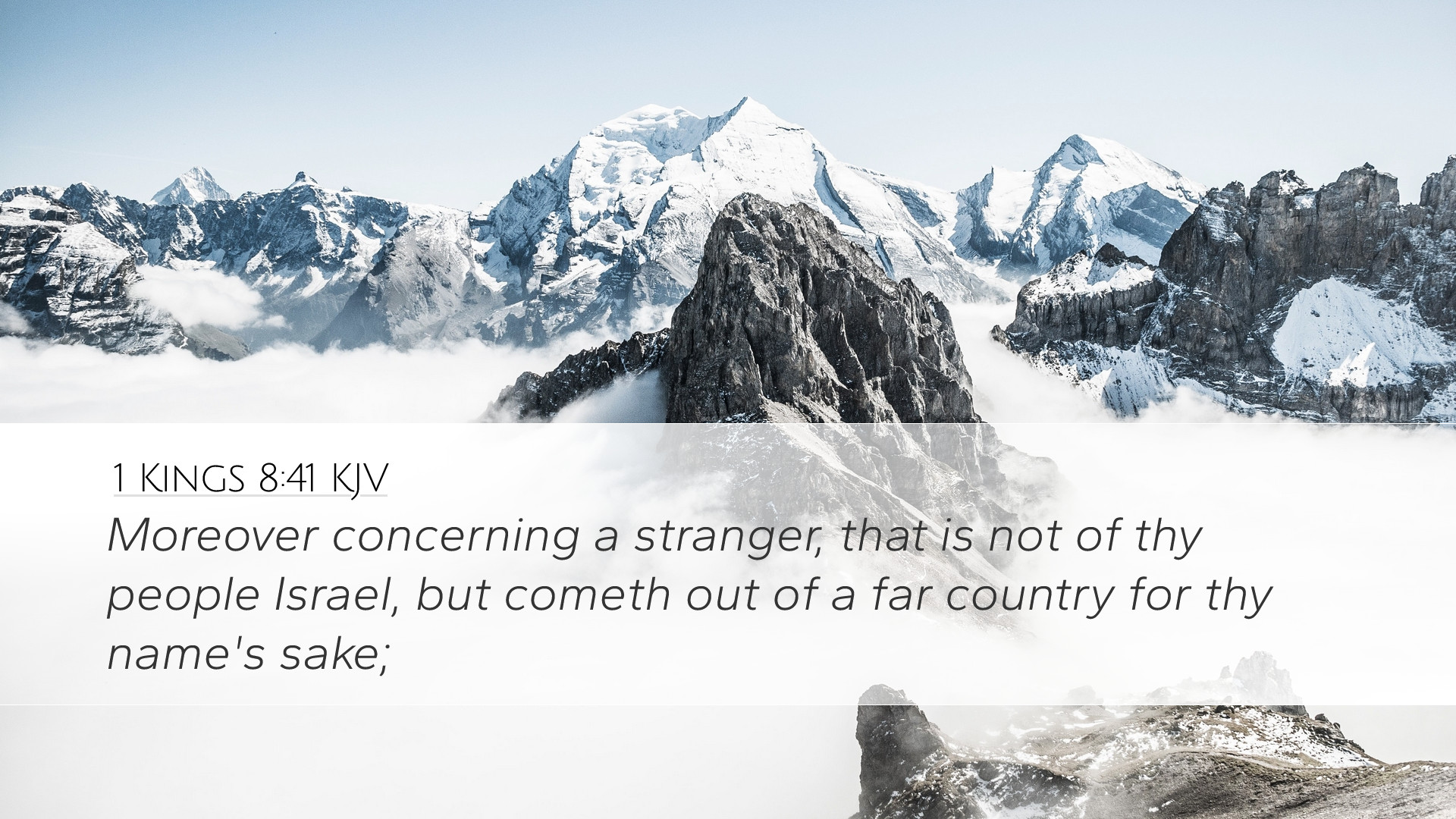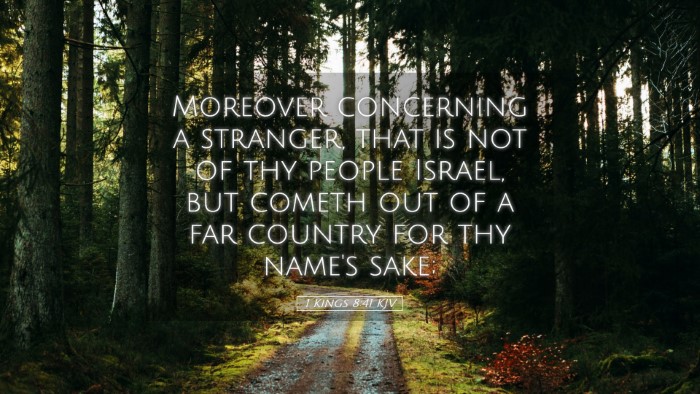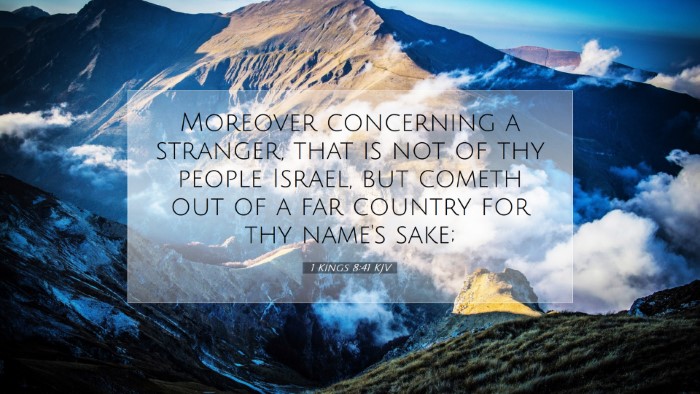Commentary on 1 Kings 8:41
Verse: "Moreover, concerning a stranger, that is not of thy people Israel, but cometh out of a far country for thy name's sake;" (1 Kings 8:41 KJV)
Introduction
This verse takes place during Solomon's prayer of dedication for the temple he built in Jerusalem. The significance of this verse lies in its implications for the inclusivity of God's grace and the universal accessibility of divine worship. As Solomon acknowledges the potential approach of foreign nations to the temple, the prayer acts as a precursor to the gospel message that emphasizes God's desire for all humanity to seek Him.
Contextual Analysis
According to Matthew Henry, this prayer reflects Solomon's understanding of the grandeur of God as not just for Israel, but for all nations. Solomon's recognition of a stranger’s approach foreshadows the broader redemptive plan God has established through Israel, wherein all peoples are expected to come to Him.
Albert Barnes elaborates that this verse highlights an important aspect of Old Testament theology—God's grace extended beyond the boundaries of Israel to include Gentiles. This serves as a reminder of God's universal sovereignty and the call for nations to worship Him.
Theological Implications
- Inclusivity of Worship: Solomon, as a divinely appointed king, understands that God's name and glory are not confined by geography or ethnicity. The acknowledgment of "a stranger” implies a recognition of God's work in the lives of those outside Israel's covenant community.
- Prayer as a Gateway: The stranger's coming to the temple indicates the importance of prayer and worship as a means of establishing a relationship with God, reflecting a promise that those who seek Him will find Him, regardless of their origin.
Historical Perspective
Adam Clarke notes that the ancient world was filled with diverse peoples and cultures, and this verse indicates a recognition of the drawing power of God’s presence. The temple was symbolically a house of prayer for all nations (Isaiah 56:7), which aligns with the vision of God's house transcending cultural barriers.
Application for Pastors and Students
Understanding 1 Kings 8:41 is critical for contemporary pastoral ministry and theological education. It reminds leaders to embrace diversity within their congregations and communities. It challenges students of the Word to grapple with the implications of God's welcoming nature in their theological reflections.
- Churches today should be places where everyone feels welcomed, reflecting God's love for all people.
- Pastors can draw from this verse to create outreach programs that specifically target those outside the church's immediate demographic, highlighting the necessity of extending grace to all.
Conclusion
1 Kings 8:41 serves as a profound reminder of God's desire for all nations to come into a relationship with Him, showcasing a vision far ahead of its time. This inclusivity underscores the call for believers to act as ambassadors of God's grace, welcoming all who seek Him into a community of faith.
In conclusion, the integration of insights from the chosen commentaries enriches our understanding of this text and encourages the church to embody the mission of bringing all people to the knowledge of God.


